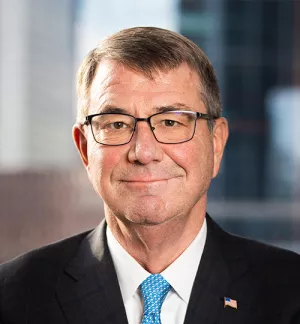[Editor's Note: This article was written in February 2020]
The Belfer Center’s commitment to the Middle East transcends study of a contentious part of the world. Our higher purpose is fostering real engagement with diverse populations. In a region where human connection—both between and within borders—remains wanting, the Center understands that there’s no substitute for direct conversation with those who make the Middle East their home.
I was reminded of this in December, when I joined several colleagues—Nick Burns, Liz Sherwood-Randall, Victoria Nuland, and Aditi Kumar—for a Track II dialogue about security issues in Israel. The Golan Heights was a prominent stop on our itinerary. Each time I visit, I recall a Mark Twain line: The difference between reading about and touring this area is like the difference between a lightning bug and a lightning bolt. Throughout, our scholars heard frontline perspectives, while our counterparts gained insight about strategic policy decisions.
The annual Track II dialogue is just one small piece of our work. The faculty chair of the Center’s Middle East Initiative, Tarek Masoud, often leads overseas trips for students to learn about local politics, development economics, and human rights. He and his colleagues also convene world-class scholars, diplomats, and senior officials from the region to share their views on campus. Other Center projects, including the Future of Diplomacy, the Iran Working Group, Managing the Atom, Intelligence, and the Geopolitics of Energy, also make important contributions to this arena. Thanks to their efforts, our community has had the opportunity in recent months to:
- Talk with former Palestinian Prime Minister Salam Fayyad about governance;
- Hear from Israeli politician Tzipi Livni about the two-state peace process;
- Learn from the activists and artists behind the musical We Live in Cairo;
- Explore how a region defined by fossil fuels can transition to renewables.
The Center’s emphasis and expertise on science and technology helps distinguish our research about this region. From chemical weapons to cyberattacks to climate change, our scholars are helping to shape timely policies at the intersection of science and regional security. No report better exemplified this distinction than the definitive analysis our experts produced about the Iran nuclear deal. Several of its contributors were called to testify before Congress, and both Republican and Democratic senators praised it as the “gold standard” of research.
* * *
We lost two very special colleagues recently. See our tributes to Paul Volcker and Pat McLaughlin on p. 14. We were also sad to learn of the passing of former Center Executive Director Brig. Gen. John Reppert. I got to know John when he was Director of the Onsite Inspection Agency, monitoring Russia’s destruction of nuclear weapons. He was a man of great integrity who understood that service mattered more than self. We’ll miss John, but we take comfort in thinking of all the young people he inspired to careers of public leadership.
Carter, Ash. "From the Director." Belfer Center Newsletter, Belfer Center for Science and International Affairs, Harvard Kennedy School. (Spring 2020).


